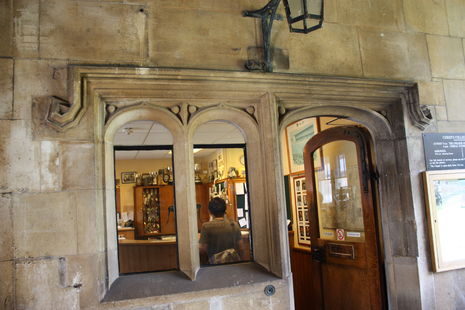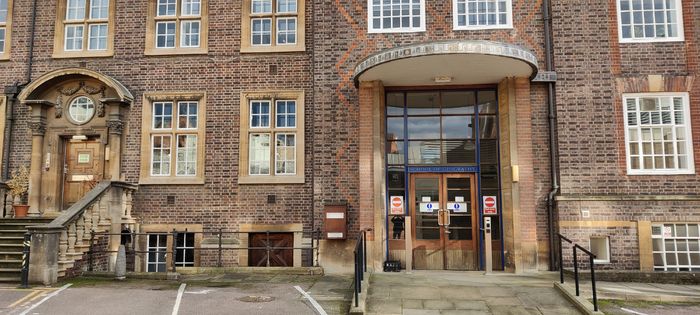End Everyday Racism report reveals pervasiveness of racism in Cambridge
The report, released yesterday by the End Everyday Racism Project, includes key findings that students felt ‘powerless’ to report experiences of racism, with over half of incidents taking place in Colleges

The End Everyday Racism Project (EER) launched a report yesterday (16/10) which details twenty-months worth of findings about “how racism is experienced at Cambridge.”
The EER was launched in October 2018, with the findings published today intended to “thoroughly document the complexity of experiencing and witnessing racism” and to inform “the work of student and staff anti-racist activism.” At the launch event, the EER stated its intention “to raise a collective case against racism.”
Although the project is independent of the University, its leading team members are predominantly based in the Department of Sociology. Supporters of the project include Cambridge UCU, Cambridge Student Union, FLY, The Black Cantabs Research Society, The 1752 Group and the Decolonising Sociology Committee.
Between October 2018 and June 2020 EER collected testimony from 117 submitted reports from both students and staff on its digital reporting platform. Findings showed that, of those who reported to the project, students are the most vulnerable population to racialisation in Cambridge, accounting for 87% of documented experiences of racism.
A recurring theme of the respondents’ testimonies was the need for their feelings about their experiences to be validated, something which was also stressed at the launch event by the EER. Respondents reported being scared of seeming “over-sensitive” or “aggressive” in regard to talking about their experiences and officially reporting.
One of the report’s “most important findings” was that people often felt “powerless” to officially report racist experiences. One person stated they were worried about filing a complaint because “reporting someone so high up in college can have bad consequences,” with many respondents aware of a status hierarchy between the perpetrator and reporter.
Commenting to Varsity, the SU BME Campaign said that this “powerlessness” felt by respondents indicates that official statistics ‘do not provide an accurate reflection of the sheer scale and extent of racial harassment’ and that BME students and staff do not “have enough confidence” in reporting procedures to use them. It emphasised the need for Colleges, Departments and the University to “close this deficit in trust by fostering an environment where BME students and staff feel seen and heard.”
Whilst not an avenue for making formal complaints, students and staff can use the EER to anonymously document their experiences of racism in Cambridge. The project hopes that this will raise awareness of racism in Cambridge and build solidarity between those who experience racist incidents. This was noted in the report itself and one respondent commented that they were “happy that for once someone is addressing this issue in Cambridge, as I felt it was swept under the carpet for too long.”
Overall, according to the report, those who identify as Asian have been the largest group who reported experiencing racism, at 40%, followed by Black people at 28%. The EER report reflects that the “current pandemic is having a significant impact” on the racism experienced by Asian people, demonstrated “in the fact that half of incidents submitted by those who identify as Asian have been reported since February 2020.”
According to the BME Campaign, the targeting of those racialised as East Asian amidst the pandemic makes “clearer than ever the Collegiate University’s duty of care and safeguarding” to university members and the wider Cambridge community in response to COVID-19, which has disproportionately affected “racialised and other marginalised groups.”
The project does not collect the identity of individuals who submit accounts but rather attempts to map “racism in and around the University and Colleges”. A key finding of the report is that more than half (53%) of all racist incidents have been in Colleges, followed by Departments where 16.7% of racist incidents were recorded.
In the incidents reported to the EER, “responses have shown that academic staff and students have equally been perpetrators, at 25% each”, followed by administrative staff and porters, both at 12% respectively.
However, despite accounting for a lower number of perpetrators, narrative data submitted to the EER “clearly shows that porters’ impact on racialisation at the University of Cambridge is significant.” Some respondents referred to being ‘portered’, with “members of the University experiencing discrimination” as they entered a college - “either their own, or when visiting friends or for supervisions.”
Participants recorded 40 incidents where they were refused entry into a place, were discriminated against while entering a space, or felt unsafe returning to a place where a racist incident had previously occurred.
A respondent to the EER detailed that “racial abuse has become part of my everyday experience at the University. I now know that I can expect this treatment from the staff even escalating to police threats.”
Based on findings about discrimination in Colleges, one of the action points recommended by the report is that there is an “urgent need” for porters to “receive extensive training on non-discriminatory practices, especially as relates to monitoring the entrance to College grounds.”
"Racial abuse has become part of my everyday experience at the University. I now know that I can expect this treatment from the staff even escalating to police threats."
The report also found that experiencing racist incidents had a detrimental impact on respondents’ work and studies, with one third of respondents stating that their experiences might have or did make it difficult for them to perform well academically or professionally.
Moreover, the report emphasised both the emotional and physical impact racist experiences had on respondents: people reported feeling “anger” amongst other negative emotions, as well as “nervousness and bodily tension.”
Experiences of racialisation had significant consequences on respondents feeling of belonging in the University, with 77 respondents (60%) feeling they do not belong in Cambridge following a racist incident, with one respondent to the EER stressing that “It’s not just this incident [which they reported] – it’s this incident in conjunction with everything else that makes me feel out of place’.”
Speaking to Varsity Dr Manali Desai, the new Head of the Sociology Department, expressed her pride in the “creative and important project led by two of my Sociology colleagues.”
She continued to praise her colleagues’ use of a “methodology of solidarity” which “can be harnessed through technology in the effort to eradicate such harmful practices and bring about social justice.”
The EER outlined action points from their findings within the report, firstly stating that staff and students should feel “safe and empowered” to report racist incidents and that the University and Colleges need to make “their anti-racist position position clearer and reporting easier.” This includes members of the University and College taking more responsibility for incidents and taking “immediate action” when complaints are filed.
The report stresses the need for university-wide anti-racism training for students and staff, with such training being mandatory for students. At the launch event today it was noted that “anti-racist training is happening slowly” but its “reach” across the University needs to be extended. In this vein, the report also stresses the responsibility Colleges need to take in addressing racism, highlighting the need to train staff members.
The report continues to highlight the importance of Colleges, Departments and other University institutions supporting the development of networks that provide support for BME university members.
“It’s not just this incident [which they reported] – it’s this incident in conjunction with everything else that makes me feel out of place’.”
The BME Campaign stressed that the work of establishing support networks tends to be done by students and staff “without any compensation or recognition, resulting in burnout and fatigue.” It was also“often co-opted and absorbed into the bureaucracy of the Collegiate University, perpetuating structures of racism.”
The Campaign calls on Colleges, Departments and the University to “listen to their [BME students’ and staff’s demands and back up their statements of support with concrete actions and resources” in order to support existing student and staff-run groups. It points to where material resources should be dedicated, such as “funding, supporting, and promoting BME (particularly Black) scholars,” and “adopting a zero-tolerance approach to racism which prioritises the wellbeing of BME people in HR policies.”
The report emphasises the need for the cultivation of support networks in relation to staff especially, citing the BAME Staff Network as a ‘first step’ but still maintains that there needs to be more spaces to discuss racist incidents. At today’s event, a representative of the BAME Staff Network discussed issues with the existing reporting procedures and the ’emotional and professional risks presented to those who wish to make a formal complaint.
The report implores the University to make its anti-racist stance more visible to the city of Cambridge, noting that not all instances of racism were perpetrated by university members. At the report's launch event collaboration across Cambridge and increased awareness of the interface between the university and city was emphasised.
A University spokesperson told Varsity that they "welcome" the report and the "important issues" raised by the EER that "we must all address."
The spokesperson continued: "There is no place in Cambridge for discrimination on the basis of race or any other characteristic. It is a responsibility for all of us across the collegiate University to acknowledge and eradicate racism. The University will continue to take the necessary steps to eradicate racism in all its practices and processes."
Finally, the report states the importance of Departments and Colleges doing more to support awareness of the EER itself, by sharing information about and links to the project. The EER says it will benefit the sense of “solidarity” between respondents and “encourage more reports to be submitted, and hence increase our understanding and awareness of everyday racism in Cambridge.”
 News / Colleges charge different rents for the same Castle Street accommodation2 March 2026
News / Colleges charge different rents for the same Castle Street accommodation2 March 2026 News / News in Brief: waterworks, wine woes, and workplace wins 1 March 2026
News / News in Brief: waterworks, wine woes, and workplace wins 1 March 2026 News / Climate activists protest for ‘ethical careers policy’1 March 2026
News / Climate activists protest for ‘ethical careers policy’1 March 2026 News / Angela Merkel among Cambridge honorary degree nominees27 February 2026
News / Angela Merkel among Cambridge honorary degree nominees27 February 2026 News / Private school teacher who lied about Cambridge degree barred from teaching27 February 2026
News / Private school teacher who lied about Cambridge degree barred from teaching27 February 2026









